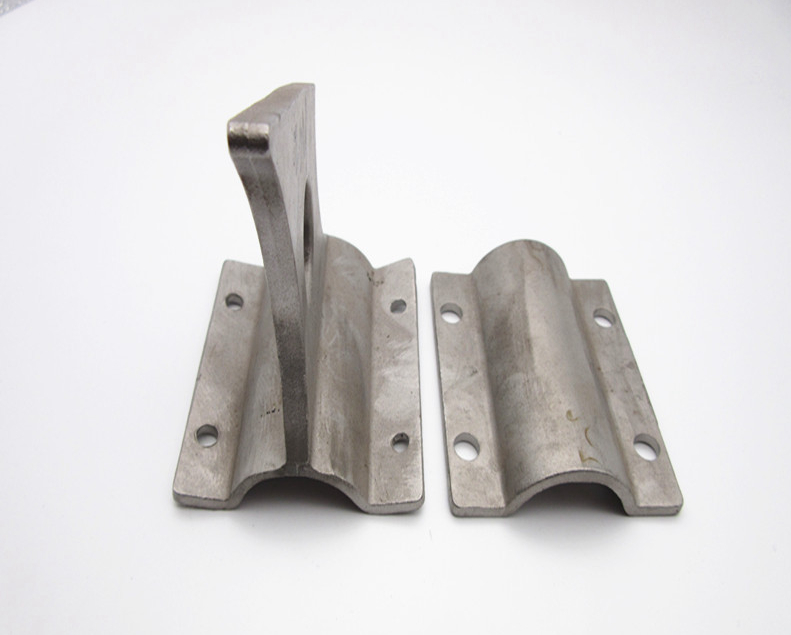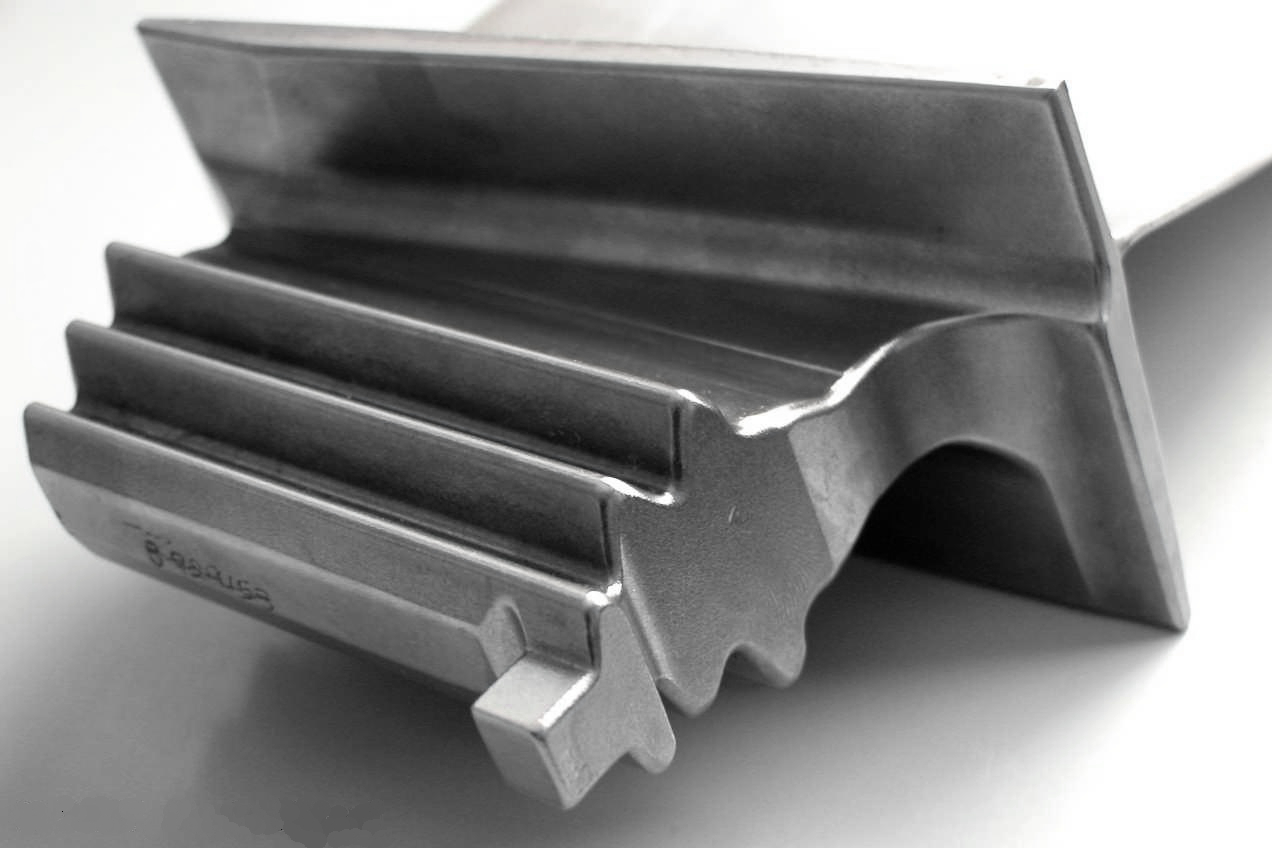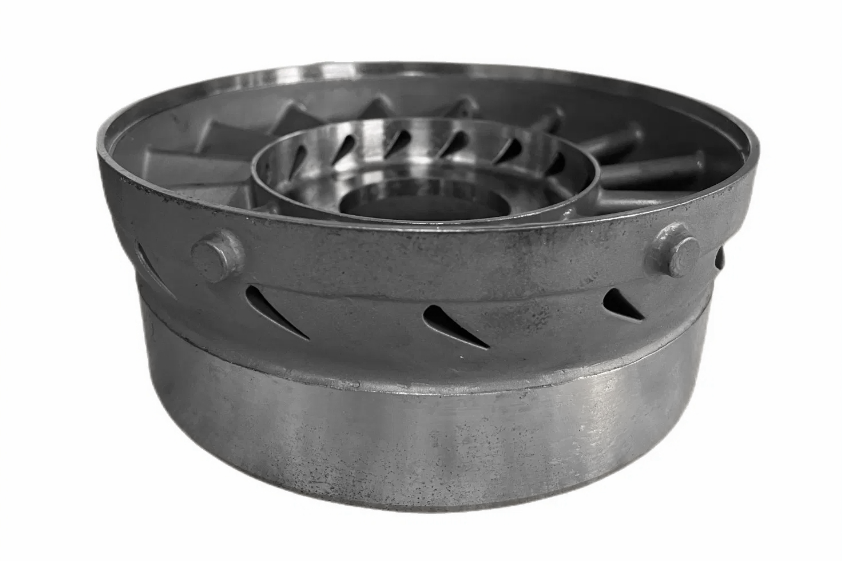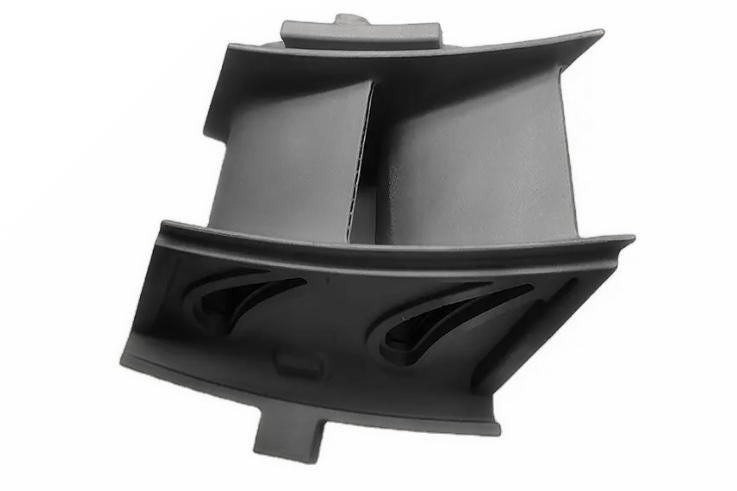Ti-6Al-4V (TC4)
About Ti-6Al-4V (TC4) Superalloy
Name and Equivalent Name
Ti-6Al-4V, or TC4 or Titanium Grade 5, conforms to standards such as UNS R56400, ASTM B348, DIN/EN 3.7164, and ISO 5832-3.
Ti-6Al-4V (TC4) Basic Introduction
Ti-6Al-4V (TC4) is a widely used titanium alloy known for its high strength-to-weight ratio, excellent corrosion resistance, and biocompatibility. It finds applications across aerospace, medical, and automotive industries, making it a preferred choice for components requiring performance under extreme conditions.
With an alpha-beta microstructure, Ti-6Al-4V combines mechanical strength with excellent thermal properties. It withstands temperatures up to 400°C without compromising performance. Its applications include aerospace components, implants, and sports equipment.

Alternative Superalloys of Ti-6Al-4V (TC4)
Alternative alloys for Ti-6Al-4V include Ti-3Al-2.5Sn, known for higher thermal stability, and Ti-5Al-2.5Sn, which offers enhanced corrosion resistance. Ti-6Al-4V ELI (Extra Low Interstitial) is often used in medical implants due to enhanced ductility.
Other materials, like Inconel and Nimonic, might replace Ti-6Al-4V in aerospace when higher temperature resistance is required, though they come with increased weight.
Ti-6Al-4V (TC4) Design Intention
Ti-6Al-4V (TC4) was developed to balance strength, weight, and corrosion resistance. Its design intends to create a material that can withstand mechanical loads and resist fatigue under repeated cycles at moderate temperatures. This alloy addresses the challenges of aerospace and medical industries, where materials must endure stress, corrosion, and biocompatibility constraints.
Ti-6Al-4V (TC4) Chemical Composition
This alloy's chemical composition balances lightweight titanium with aluminum for strength and vanadium for corrosion resistance and hardenability. Carbon and iron contents are kept minimal to maintain ductility.
Element | Content (wt%) |
|---|---|
Aluminum (Al) | 5.5 – 6.75 |
Vanadium (V) | 3.5 – 4.5 |
Carbon (C) | ≤ 0.08 |
Iron (Fe) | ≤ 0.3 |
Ti-6Al-4V (TC4) Physical Properties
Ti-6Al-4V offers a lightweight structure with a 4.43 g/cm³ density and can endure a melting point of 1604°C. Its thermal conductivity ensures efficient heat dissipation, making it ideal for high-performance applications.
Property | Value |
|---|---|
Density | 4.43 g/cm³ |
Melting Point | 1604°C |
Thermal Conductivity | 6.7 W/(m·K) |
Elastic Modulus | 113 GPa |
Metallographic Structure of Ti-6Al-4V (TC4) Superalloy
The metallography of Ti-6Al-4V consists of a biphasic alpha-beta structure. The alpha phase contributes to the alloy's toughness, while the beta phase enhances its strength and hardenability. Heat treatment can refine the microstructure to achieve specific mechanical properties, such as improved fatigue strength and fracture toughness.
The alloy's structure ensures durability under cyclic loading, making it a popular choice for aerospace applications. The presence of aluminum stabilizes the alpha phase, while vanadium promotes the retention of the beta phase at lower temperatures.
Ti-6Al-4V (TC4) Mechanical Properties
Ti-6Al-4V exhibits excellent mechanical strength and fatigue resistance. It maintains structural integrity up to 400°C and offers good creep strength, ensuring a long service life under mechanical loads.
Property | Value |
|---|---|
Tensile Strength | 900 – 950 MPa |
Yield Strength | 825 MPa |
Hardness | ~30 HRC |
Elongation | 10 – 14% |
Key Features of Ti-6Al-4V (TC4) Superalloy
High Strength-to-Weight Ratio Ti-6Al-4V provides exceptional mechanical strength with minimal weight, which is ideal for aerospace and automotive components. This feature ensures efficiency and fuel savings.
Excellent Corrosion Resistance The alloy withstands harsh environments, making it suitable for marine and chemical processing industries. Its corrosion resistance enhances durability and reduces maintenance costs.
Biocompatibility Ti-6Al-4V is extensively used in medical implants due to its compatibility with human tissue, ensuring minimal rejection or adverse reactions.
Thermal Stability The alloy maintains mechanical properties at elevated temperatures up to 400°C, enabling applications in turbines and jet engines.
High Fatigue Strength With superior resistance to cyclic loading, Ti-6Al-4V excels in demanding applications where repeated stress is expected, such as aerospace and power generation components.
Ti-6Al-4V (TC4) Superalloy’s Machinability
Vacuum Investment Casting: Ti-6Al-4V is suitable for Vacuum Investment Casting due to its low melting point and ability to retain mechanical properties. This process ensures precise control, reducing contamination and producing high-quality components.
Single Crystal Casting: Single Crystal Casting is not a common technique for Ti-6Al-4V, as the alloy's properties do not align with the high-temperature creep resistance and single-phase requirements typically sought for turbine blades.
Equiaxed Crystal Casting: Equiaxed Crystal casting is a suitable option for Ti-6Al-4V. This casting method ensures uniform grain distribution, enhancing the alloy’s structural integrity and mechanical strength.
Superalloy Directional Casting: Although Ti-6Al-4V can be used in Superalloy Directional Casting, it is less preferred due to its lower thermal resistance than nickel-based superalloys, which are better suited for this process.
Powder Metallurgy Turbine Disc: Ti-6Al-4V is ideal for Powder Metallurgy Turbine Disc applications, where weight reduction is a priority and high strength.
Superalloy Precision Forging: Superalloy Precision Forging is one of the most effective methods for processing Ti-6Al-4V, as it enhances the alloy's strength while maintaining toughness and corrosion resistance.
Superalloy 3D Printing: Ti-6Al-4V is highly compatible with Superalloy 3D Printing, offering excellent mechanical properties and allowing for rapidly producing complex shapes and custom components.
CNC Machining: CNC Machining of Ti-6Al-4V requires specific tools and cutting conditions due to its toughness. The process produces precise components with high-quality finishes for aerospace, automotive, and medical applications.
Superalloy Welding: Superalloy Welding of Ti-6Al-4V demands precise control to avoid contamination and cracking. However, it is widely used in the aerospace and medical sectors for joining complex assemblies.
Hot Isostatic Pressing (HIP): Hot Isostatic Pressing (HIP) can be applied to Ti-6Al-4V to eliminate internal voids and improve mechanical properties, particularly in 3D-printed parts.
Ti-6Al-4V (TC4) Superalloy Applications
Aerospace and Aviation: In the Aerospace and Aviation industry, Ti-6Al-4V is used for airframes, engine components, and landing gears, offering a lightweight solution with high fatigue resistance.
Power Generation: Ti-6Al-4V components, such as turbine blades and heat exchangers, are used in the Power Generation sector for their ability to withstand moderate temperatures and corrosion.
Oil and Gas: The alloy finds applications in the Oil and Gas industry for subsea equipment, valves, and pipelines thanks to its excellent corrosion resistance and mechanical strength.
Energy: Ti-6Al-4V plays a role in Energy systems by providing durable, lightweight components for renewable energy technologies, such as wind turbines and solar mounts.
Marine: The alloy's corrosion resistance makes it ideal for Marine environments, where it is used for propeller shafts, exhaust systems, and underwater casings.
Mining: In the Mining industry, Ti-6Al-4V is employed in wear-resistant equipment, including drill bits, pump housings, and impellers.
Automotive: Automotive applications include connecting rods, valves, and exhaust components, where weight reduction and performance improvement are essential.
Chemical Processing: In Chemical Processing, Ti-6Al-4V is favored for heat exchangers and reactor vessels, offering resistance to aggressive chemicals and high temperatures.
Pharmaceutical and Food: The alloy is used in the Pharmaceutical and Food industries for hygienic pumps, valves, and mixers due to its corrosion resistance and biocompatibility.
Military and Defense: Ti-6Al-4V supports Military and Defense applications by providing armor plating and lightweight structures for military vehicles and aircraft.
Nuclear: In the nuclear sector, Ti-6Al-4V is used for radiation shielding and for exposing components to corrosive environments within reactors.
When to Choose Ti-6Al-4V (TC4) Superalloy
Custom superalloy parts made from Ti-6Al-4V are essential when balancing strength, weight, and corrosion resistance is critical. This alloy should be used in applications with prevalent moderate operating temperatures and cyclic loading. It is also ideal for industries that demand biocompatibility, such as medical implants, or in environments where corrosion poses a significant threat, such as marine and chemical processing. Ti-6Al-4V offers reliable solutions for lightweight structures in aerospace, automotive, and defense sectors, ensuring long-term performance and durability.




